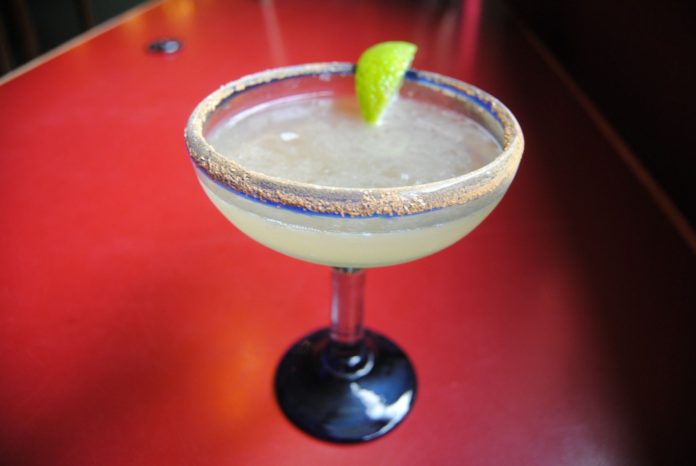Americans are drinking more tequila than ever. It’s a run the world’s largest producers fear could soon falter as President Donald Trump ratchets up trade tensions with Mexico.
A feud over payment for a proposed wall lining the U.S. and Mexico border culminated in Trump’s call for a 20 percent levy on Mexican imports, clouding prospects for one of the most popular spirits in the U.S. Concerns surrounding a border tax could weigh on Jose Cuervo’s filing Thursday for an initial public offering in Mexico and were one of the only blights on Paris-based Pernod Ricard’s estimate-beating earnings.
“It could lead to inflation in the U.S. and in consequence this could have an adverse impact on consumption,” Pernod Ricard Chief Financial Officer Gilles Bogaert said on a call with investors. “The reality is that we don’t know what’s going to happen. There are many uncertainties.”
From 2010 to 2015, tequila sales rose 30 percent by volume in the U.S., more than any other alcohol category except cognac, according to research firm Euromonitor International. The surge has been led by small-batch agave-based spirits including mezcal — a smokier-tasting cousin of tequila — rather than mainstream brands mixed in margaritas.
The world’s largest distillers have responded by increasing investment in Mexico — a neighbor that Trump has said is taking advantage of the U.S. by not addressing trade deficits and border security. Unlike cars, the target of some of Trump’s trade broadsides, tequila can only be made in certain regions of Mexico.
“If I were a tequila producer, I might be a little bit afraid, for sure,” Remy Cointreau Chief Executive Officer Valerie Chapoulaud-Floquet said on a call with reporters in January. Foreign spirits could be treated differently from U.S. whiskey brands such as the company’s Westland single malt, which may benefit from Trump’s calls for “America-first” policies, she said.
The dispute has yet to dampen international players’ commitment. Diageo, whose Don Julio tequila is growing faster than its flagship Smirnoff vodka and Johnnie Walker scotch, is “absolutely on the path to expanding our manufacturing capacity down in Mexico — that work is starting and under way,” Chief Financial Officer Kathy Mikells said in January.
In 2015, Diageo pledged to invest $400 million days after it acquired the brand from Jose Cuervo, the rival tequila producer valuing itself at $789 million in an initial public offering on the Mexican Stock Exchange.
For producers that have significant exposure to the U.S., such as Jose Cuervo and Sauza owner Suntory Holdings, talk of a border tax is a potentially serious threat, Trevor Stirling, an analyst at Sanford C. Bernstein, said by phone.
“It’ll slow down growth in the category,” he said.
Uncertainty surrounding U.S.-Cuba relations, which had begun to thaw under President Barack Obama, also clouds prospects for Pernod Ricard’s goal of eventually selling Cuban-made Havana Club rum in the U.S., Bogaert said in an interview Thursday. Trump has said he plans to review U.S. policy toward the country.
Pernod Ricard, whose tequila brands include Olmeca and Avion, will focus on growing its business in Mexico by building appeal for brands such as Absolut vodka to offset any potential slowdown in exports to the U.S., Bogaert said.
“In the world of today, with all the uncertainties we have, it’s better to be careful in looking at everything that could happen,” Bogaert said in an interview.
Amid the uncertainty, some U.S. fans of Mexican beers and spirits are already lamenting the prospect of higher prices.
“Any policy proposal which drives up costs of Corona, tequila, or margaritas is a big-time bad idea. Mucho Sad,” Senator Lindsey Graham, a Republican from South Carolina, has said on Twitter.






